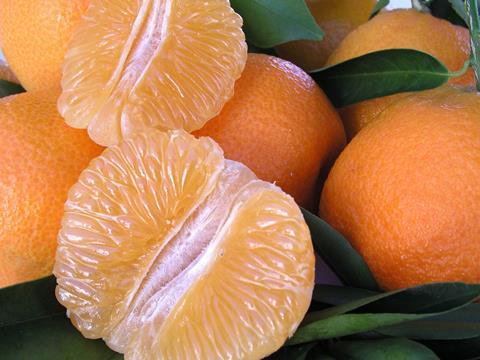CBS is in the spotlight again as the South African citrus industry points finger at EU’s position
There are now perhaps signs of desperation in the actions of South Africa’s citrus industry when it comes to trade with the European Union.

Citrus black spot (CBS) is back in the limelight as the industry and the South African government has been unable to convince the EU to change what it has called unfair regulations on the fungal disease.
The South African Citrus Growers’ Association (CGA) is again putting pressure on the country’s president Cyril Ramaphosa to urgently intervene.
It wants Ramaphosa to act and halt unfair trade regulations enforced by the EU on the local citrus industry, in particular what they call “their discriminatory trade regulations” on CBS, which is threatening thousands of jobs in the sector.
“The EU has continued to enforce rules that are unscientific and irrational,” said Deon Joubert, the CGA’s special envoy for market access and EU matters. ”The situation has now become so serious that substantial losses in jobs and revenue are on the horizon unless immediate action is taken.
“So far this season the EU has claimed a number of interceptions of CBS on fruit,” he noted. ”However, a pattern of erroneous classifications of CBS has been established. In Belgium and Portugal CBS tests have proven to be unreliable and have resulted in false positives.”
The CGA has been battling for the past ten years to get the EU to change its mind on the threat of CBS.
More recently the EU introduced new regulations for false codling moth (FCM). These new rules caused major losses last year and are expected to take a toll on this year’s orange exports to the EU.
“The CGA and the Department of Trade, Industry and Competition (DTIC), the Department of Agriculture, Land Reform and Rural development (DALLRD) and the Department of International Relations and Cooperation (DIRCO) have worked together for over ten years to put a stop to the CBS regulations,” Joubert continued. “Unfortunately, the EU has continued to enforce rules that are unscientific and irrational.”
The industry has continued to raise the fact that CBS is a cosmetic issue that only effects a ”miniscule percentage” of fruit exported, thanks to South Africa’s world-class control measures.
“Even though there is conclusive evidence that citrus fruit without leaves is not a pathway for the spread of CBS, the EU has continued to enforce these unreasonable measures,” he confirmed.
The EU is the only overseas marketing area holding this position on CBS, Joubert said. “Other markets acknowledge that the risk of establishment and spread of the disease through trade in fresh fruit is completely negligible.
“It is critical that the South African government draws a line in the sand and calls for an official World Trade Organisation (WTO) dispute with the EU on their CBS regulations.”
The latest salvo in the battle with the EU comes at a time when the citrus export season is moving into a critical period.
The CGA has previously warned that up to 20 per cent of its export volume will have to stay at home this year because of the new EU FCM regulations.
It is clearly critical that the long-standing CBS matter is resolved, because interventions due to interceptions could further disrupt exports.



